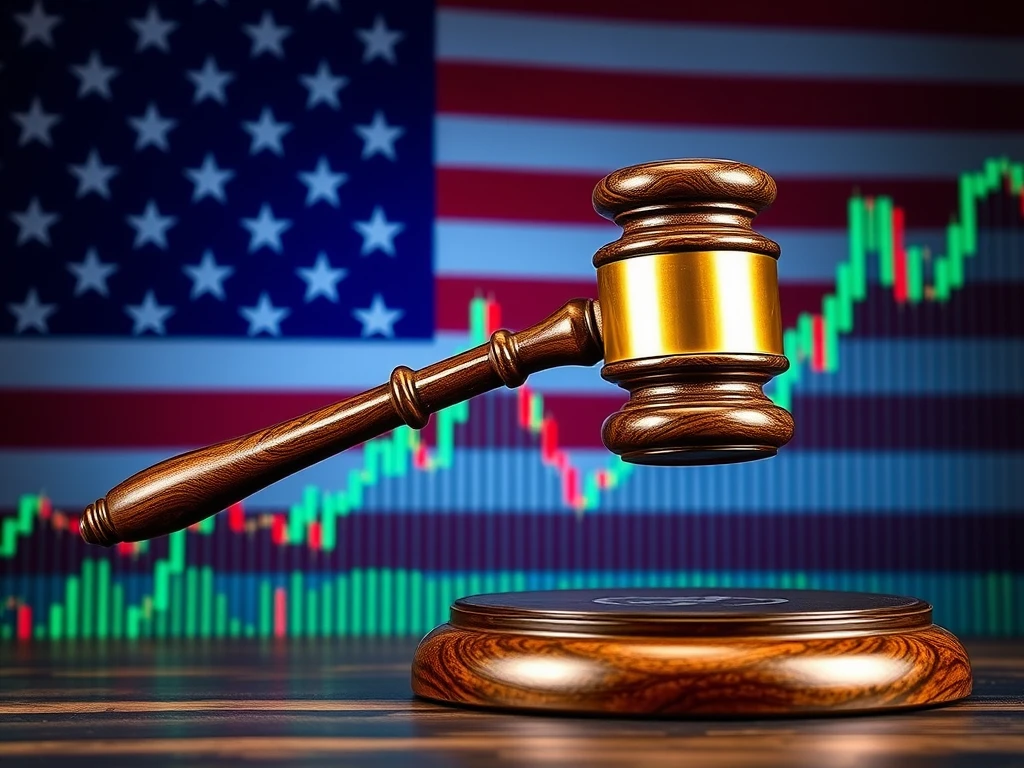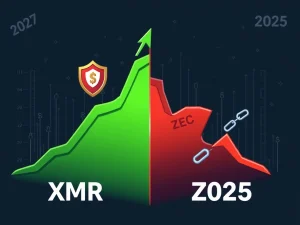Defiant US Prosecutors Pursue SafeMoon CEO Case Despite Shocking DOJ Memo

In a surprising turn of events, federal prosecutors in the US are set to continue their pursuit of the SafeMoon CEO case, even in the face of a recent Justice Department memo that hinted at a potential shift in crypto enforcement strategy. This bold move signals a potential divergence between federal prosecutors and broader DOJ policy, leaving the crypto world watching closely. What does this mean for the future of crypto enforcement and the ongoing debate around digital asset regulation?
Unwavering Pursuit: US Prosecutors Crypto Case Against SafeMoon CEO Continues
Despite signals from a DOJ memo suggesting a more lenient approach to crypto regulation under a potential new administration, US prosecutors crypto division are demonstrating resolve. They have declared their intention to press forward with the case against Braden John Karony, the former CEO of SafeMoon. This decision, outlined in an April 18 filing, comes after reviewing the April 7 DOJ memo authored by Deputy Attorney General Todd Blanche. The memo sparked speculation about a possible pullback on prosecuting crypto-related offenses, suggesting a move away from “regulation by prosecution.”
However, US Attorney for the Eastern District of New York, John Durham, made it clear that his office is not deterred. They are prepared to proceed with the trial against Karony, who faces serious charges including:
- Securities fraud conspiracy
- Wire fraud conspiracy
- Money laundering conspiracy
These charges stem from allegations that Karony orchestrated the diversion and misappropriation of millions of dollars worth of SafeMoon’s SFM token between 2021 and 2022. The legal notice filed on April 18 underscores the unwavering commitment of US prosecutors to hold individuals accountable for alleged financial misconduct in the digital asset space.
Key Takeaway: The decision by US prosecutors to continue the SafeMoon CEO case highlights a potential conflict with a DOJ memo that hinted at reduced crypto enforcement, signaling a complex and evolving legal landscape for digital assets.
DOJ Memo Crypto Confusion: A Shift in Enforcement or Just a Suggestion?
The DOJ memo crypto sphere has been closely analyzing, issued on April 7, which suggested a potential policy shift away from aggressive crypto enforcement. This memo, stemming from the Justice Department under President Donald Trump, raised eyebrows and sparked discussions about a possible change in regulatory direction. Karony’s legal team even attempted to leverage this uncertainty, arguing in February for a trial delay, citing potential “significant changes” in securities laws enforcement under a Trump presidency.
While Judge denied the delay and set jury selection for May 5, the DOJ memo fueled speculation about a broader policy shift. Karony’s defense team had previously hinted at the possibility of the DOJ changing its stance on whether digital assets like SafeMoon should even be considered “securities” under the law. This argument became more pointed after the SEC, under acting chair Mark Uyeda (appointed by Trump), began to dismiss cases and halt investigations against several crypto firms, including Ripple Labs, Coinbase, and Kraken.
The SEC’s actions, coupled with the DOJ memo, painted a picture of potentially softening regulatory stance. Further adding to this narrative, the SEC also initiated a crypto task force focused on creating a regulatory framework for digital assets and even suggested that memecoins might not be classified as securities. This apparent shift contrasts sharply with the more assertive approach taken by the SEC under former chair Gary Gensler.
Points to Consider:
- The DOJ memo raised questions about a potential shift away from “regulation by prosecution” in the crypto space.
- Karony’s legal team attempted to use this memo to delay his trial, anticipating policy changes.
- SEC actions under a Trump appointee suggested a more permissive stance on digital assets.
The Looming Question: Is SafeMoon a Security Under Securities Fraud Law?
At the heart of the securities fraud case against SafeMoon CEO lies a fundamental question: Is SafeMoon (SFM) token a security? This classification is critical because securities are subject to stricter regulations and enforcement under US law. The government’s case against Karony heavily relies on the premise that SFM is indeed a security, thus falling under the purview of securities fraud laws.
Karony’s legal team challenged this very notion, suggesting that the DOJ itself might reconsider whether digital assets like SafeMoon should be classified as securities. This challenge reflects the ongoing debate within the legal and regulatory spheres about how to categorize and regulate the diverse range of digital assets. The outcome of the SafeMoon case could set a precedent for future securities fraud cases involving cryptocurrencies and altcoins.
The Securities and Exchange Commission’s (SEC) Evolving Stance:
| Action | Implication |
|---|---|
| Dismissed cases against Ripple, Coinbase, Kraken | Suggests a potentially less aggressive enforcement approach towards established crypto firms. |
| Launched crypto task force | Indicates a move towards creating a clearer regulatory framework for digital assets. |
| Memo suggesting memecoins are not securities | Raises questions about the SEC’s evolving definition of ‘securities’ in the crypto context. |
Future of Crypto Enforcement: What Does This Mean for Digital Assets?
The decision of US prosecutors to continue the SafeMoon CEO case despite the DOJ memo creates uncertainty and intrigue within the digital asset industry. It highlights the potential for conflicting signals and approaches within the US government regarding crypto enforcement. While some branches might be signaling a more relaxed stance, others are demonstrating a continued commitment to prosecuting alleged financial crimes in the crypto space.
The unfolding SafeMoon CEO case will be a crucial one to watch. It could provide clarity on:
- The DOJ’s actual stance on crypto enforcement moving forward.
- How US courts will interpret and apply securities laws to digital assets.
- The level of coordination (or lack thereof) between different government agencies like the DOJ and SEC in regulating crypto.
The contrasting viewpoints and actions from different government bodies create a complex and dynamic regulatory environment for the crypto industry. As former SEC official John Reed Stark pointed out, this apparent shift in approach could be “endangering our financial system” and raises concerns about investor protection. The coming months will be critical in determining the direction of crypto enforcement and the overall regulatory landscape for digital assets in the United States.
In Conclusion: A Defiant Stand in the Crypto Legal Arena
The decision by US prosecutors to proceed with the SafeMoon CEO case, defying signals from a DOJ memo, underscores the ongoing tensions and uncertainties in the realm of crypto regulation. This legal battle is more than just a case against one individual; it’s a reflection of the broader struggle to define and enforce regulations in the rapidly evolving world of digital assets. As the trial approaches in May, the crypto community and legal experts alike will be keenly observing, seeking clarity and direction in this pivotal moment for crypto enforcement and the future of digital asset regulation.










